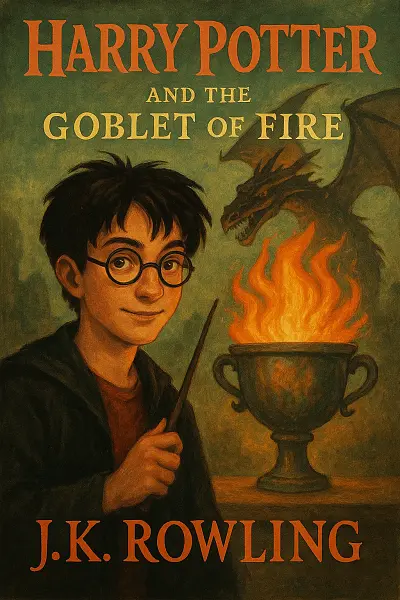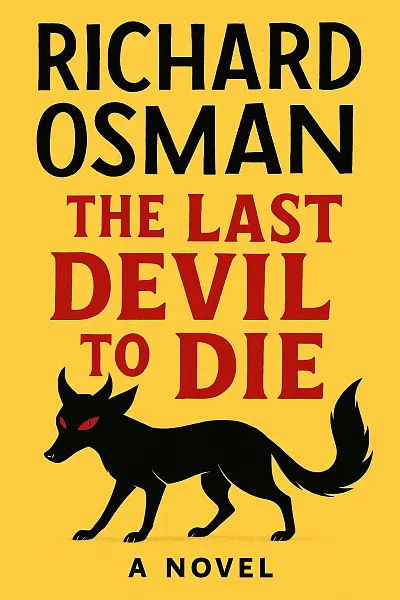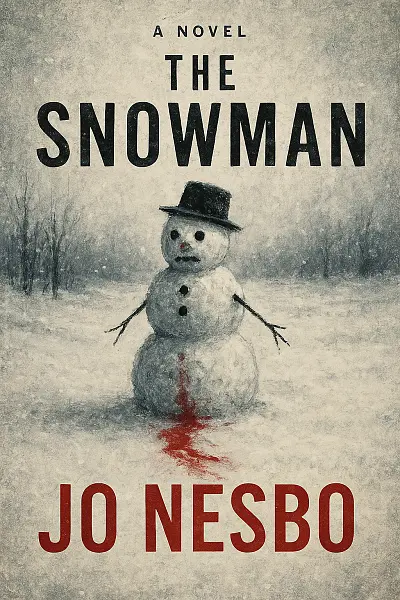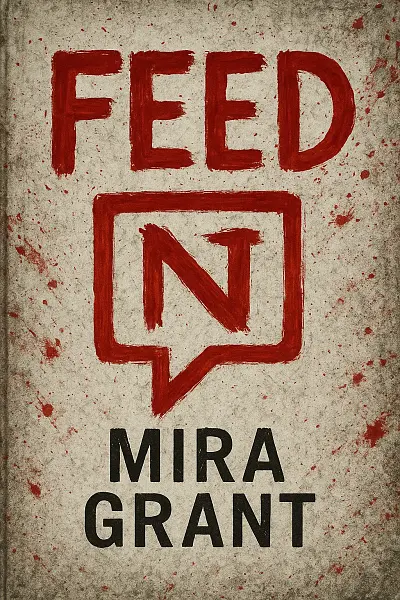
Feed
by: Mira Grant
Georgia and Shaun Mason run a snarky, fearless blog in a 2039 America swarming with the undead. Life is all about playing by the rules and reporting every new development, until they land the scoop of a lifetime: covering a presidential campaign in a world where any misstep could mean infection. Suddenly, the siblings are swept into a tangled web of power plays, deadly secrets, and paranoia as no one—not even fellow reporters—can be trusted.
With every truth they chase, the danger tightens. In Mira Grant’s sharp, tense world, the big question becomes: will their truth-telling save anyone, or just get them killed?
""The truth might not save us, but ignoring it will destroy us faster than any virus ever could.""
Let's Break This Down
The Author's Voice
Atmosphere
- Expect a relentlessly tense and grimly plausible near-future setting, laced with anxiety and wary cynicism.
- The mood is charged with paranoia—think late-night newsrooms meets zombie apocalypse.
- Claustrophobic, yet laced with a bleak, biting humor that undercuts the horror, keeping things grounded and sardonic.
Prose Style
- Mira Grant leans hard into a journalistic, direct, almost documentary tone—you’ll find lots of sharp, first-person narration that’s as brisk as a breaking news alert.
- Dialogue is snappy and crackling with dark wit; exposition is peppered with pop culture, political observations, and cynical asides.
- There’s a stripped-down clarity here, punctuated by the protagonist’s personal voice, which sometimes turns raw and confessional, making the emotional stakes hit home.
Pacing
- Relentless momentum—the story is built like a rolling news ticker, with barely any time to breathe between crises.
- Action scenes are lean, vivid, and urgent, soothing readers who crave non-stop thrills, while quieter moments still sizzle with underlying tension.
- Occasional info-dumps about science or media can slow the pacing briefly, but usually double as world-building—never totally derailing the plot.
Characterization
- Characters are shaped by snarky banter, vulnerability masked by bravado, and believable flaws.
- Relationships feel real and messy, fueled by loyalty, ambition, and the costs of always being "on record."
- The narrator’s voice dominates, giving an intimate, confessional tilt to even major plot events.
Overall Rhythm & Feel
- Caffeinated, adrenaline-fueled, and cynical without being hopeless.
- If you like your post-apocalypse tempered with smart, media-savvy commentary and whip-smart characters who never lose their edge—this one’s got your name all over it.
- Prepare for a ride that feels like live-tweeting the end of the world from inside the newsroom—gritty, fast, and weirdly funny, despite the body count.
Key Moments
- On-the-run liveblogging from zombie-infested campaign rallies
- Sibling banter with razor-edge, masking heartbreak beneath the jokes
- White-knuckle tension as Georgia and Shaun navigate viral politics—literally
- “Truth is viral”—journalistic ethics clash with survival in a post-apocalyptic world
- A gut-punch betrayal in the homestretch that rewrites every motive
- The love and terror of family: more dangerous than undead hordes
- Fast-paced chapters peppered with piercing social commentary on media, fear, and power
Plot Summary
Feed by Mira Grant throws us into 2040, in a post-zombie-apocalypse America where humanity has adapted to the constant threat of infection. Sibling bloggers Georgia and Shaun Mason are selected to follow Senator Peter Ryman’s presidential campaign, hoping to gain fame as independent journalists. As their investigative reporting uncovers a series of suspicious "outbreaks" linked to political sabotage, the stakes get deadly. The story’s emotional climax hits when Georgia is infected and sacrifices herself, choosing to die rather than turn, while Shaun, devastated, kills her himself. The novel wraps up with Shaun determined to honor Georgia’s legacy, exposing the conspiracy and reshaping the blogger-driven media landscape.
Character Analysis
Georgia Mason stands out as principled and fiercely loyal, driven by a belief in truth above all—her devotion to honest journalism shapes her every move, and her tragic end cements her role as the novel’s moral center. Shaun Mason, mischievous and impulsive, starts off carefree but matures after Georgia’s death, carrying her ideals forward in his own way. Supporting characters like Senator Ryman and the tech-savvy Buffy Meissonier add depth, showing both the dangers of ambition and the costs of survival in a distrustful world. Every central character’s journey is colored by loss, loyalty, and the constant shadow of fear.
Major Themes
The novel deeply explores the ethics of journalism, stressing the responsibility to seek and share the truth even when it’s risky; Georgia’s commitment sets the tone here. Feed also digs into the manipulation of fear for political gain—outbreaks are staged, and paranoia is weaponized in pursuit of power, driving home the dangers of corrupt authority. Another major thread is the nature of trust and betrayal, especially as Georgia and Shaun lose friends and allies to secrets and double-crosses. All of this is wrapped in questions about family, both blood-related and chosen, as seen in the Mason siblings’ powerful bond and the makeshift family of their blogging team.
Literary Techniques & Style
Mira Grant writes in a sharp, punchy first-person style through Georgia’s eyes, mixing blog entries with narrative chapters to keep the pacing brisk and immersive. The book blends journalism slang, tech lingo, and raw emotional honesty, giving the world a tangible, lived-in feel. Symbolism pops up in the ever-present threat of infection—mirroring how information (or misinformation) “goes viral.” Grant uses metaphors like the “feed” to explore not just zombies’ hunger, but society’s own unending appetite for news, shocking headlines, and connection.
Historical/Cultural Context
Set decades after a world-changing viral outbreak, Feed weaves together zombie-horror tropes with post-9/11 political anxieties—fear, security, and media distrust are everywhere. The rise of bloggers as credible journalists is a nod to the changing media landscape of the early 2000s, where traditional sources lost ground to online voices. The story captures a culture’s struggle with both new threats (literal viruses) and old ones (corruption, censorship, and distrust in authority).
Critical Significance & Impact
Feed stands out in the zombie genre for its blend of political thriller, social commentary, and chilling horror—earning critical praise for its originality and believable character dynamics. It resonates with anyone curious about the media’s role in shaping reality, and fans love its tense, twisty plot and emotionally charged ending. Over a decade on, it’s still spotlighted as a smart, gripping read, brilliantly fusing apocalyptic spectacle with real-world questions we’re all still wrestling with.
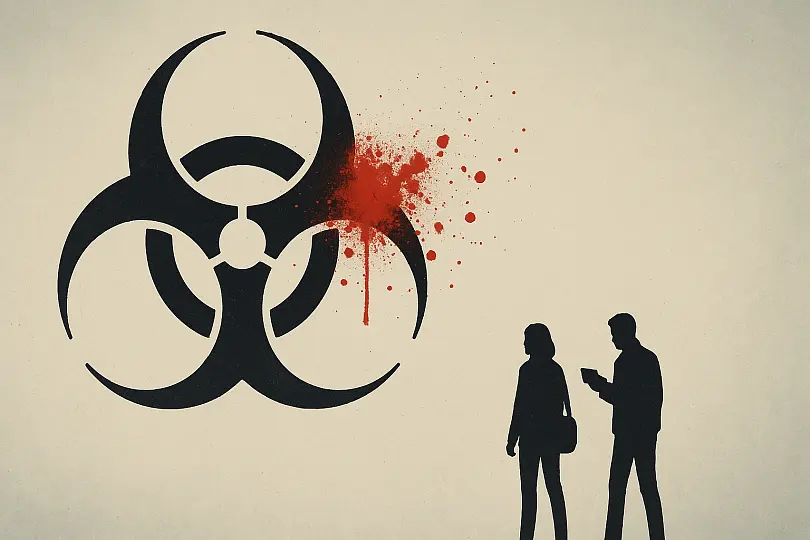
News is survival in a world where the truth can kill you twice.
What Readers Are Saying
Right for You If
If you’re all about post-apocalyptic adventures with a side of biting satire, Feed by Mira Grant is totally up your alley. Seriously, if you love stories that blend zombies and sharp commentary on media, blogging, and politics, this series should be at the top of your TBR.
- Readers who obsess over fast-paced thrillers—you’ll be hooked. The action rarely lets up, but the suspense stays clever, not just gory.
- Into found family vibes, strong sibling relationships, and intrepid journalists fighting for the truth? You’ll absolutely love the main characters—Georgia and Shaun are basically the dream team for anyone who likes their heroes flawed but fiercely loyal.
- Die-hard zombie fans: this world-building is next-level. Grant gives you sciencey explanations for the outbreak, but never lets it bog down the pace.
- If you get a kick out of media and political conspiracies (or if you were ever on LiveJournal), there’s SO much you’ll appreciate here. It’s clever and critical in a way that feels relevant.
But heads up:
If you like your horror pure and genuinely scary, you might find the tone a little too snarky. This isn’t grim, hopeless zombie horror—there’s a lot of clever banter, character-driven drama, and nerdy blog posts. If you’re not into journalistic plots or find political maneuvering boring, you might wish for a more straightforward action story.
Also, if you’re more about swoony romance or lush prose, this style leans harder on plot, character dynamics, and world-building than lovey-dovey moments or poetic language.
So basically—if you vibe with apocalypse, journalism, and smart, snarky storytelling, Feed is gonna be your jam. If you want something cozier, romance-heavy, or super literary… probably best to skip it.
What You're Getting Into
Ready for a wild, adrenaline-fueled ride?
In a near-future world forever changed by a zombie virus outbreak, sibling bloggers Georgia and Shaun Mason are determined to uncover the truth behind the political machine as they cover a major presidential campaign.
With razor-sharp wit and relentless tenacity, they navigate viral dangers, government secrets, and media manipulation, where every post could be their last.
If you love high-stakes journalism, snarky banter, and a fresh twist on the post-apocalyptic genre, Feed is the kind of thrilling, smart adventure you won’t want to put down!
Characters You'll Meet
-
Georgia "George" Mason: The sharp, determined protagonist and primary blogger, driven by a relentless pursuit of truth. Her leadership and big-picture focus guide the team through constant danger.
-
Shaun Mason: Georgia’s adrenaline-junkie brother and skilled "Irwin" blogger. He’s fiercely protective of George and brings a mix of humor, recklessness, and loyalty to the group dynamic.
-
Buffy Meissonier: The tech-savvy “Fictional” blogger whose creativity and optimism shine through. She provides technical support and emotional warmth, but her trusting nature puts her at risk.
-
Senator Peter Ryman: Presidential candidate whose campaign becomes the central focus of the bloggers’ reporting. He’s ambitious but principled, representing hope for a better post-apocalyptic society.
-
Rick Cousins: Political blogger who joins the team for the campaign coverage. He brings a more cynical, realist edge to reporting, often challenging Georgia’s perspectives.
More Like This
If World War Z by Max Brooks is a staple on your shelf, Mira Grant's Feed is likely to hook you in much the same way—with its intricate world-building and speculative take on a society ravaged by zombies, but told through the lens of razor-sharp journalism rather than oral history. Both books blend horror with profound social commentary, but Feed cranks up the tension with political intrigue and a breakneck, blog-fueled narrative that could be catnip for fans of Brooks’s investigative approach.
For readers who tore through The Hunger Games by Suzanne Collins, Feed offers a similarly fierce protagonist operating in a world where the media is both weapon and shield. Like Katniss, Georgia Mason navigates danger not just with grit but with watchful intelligence—surviving not only monsters, but also the tragic manipulations of those in power.
Cinematically, Feed conjures the relentless tension of The Walking Dead, yet diverges by spotlighting the digital age’s obsession with truth, clicks, and viral fame. Where The Walking Dead steeps you in survivalist dread and ensemble drama, Feed pulses with the urgency of live-blogging—the threat as likely to come from misinformation as from a lurking zombie. Both dive deep into how tragedy reshapes community and identity, but Grant filters this through a fast-paced, media-saturated lens that feels refreshingly present-day.
Critic's Corner
What does it cost to stay human when the world rewards your cynicism? “Feed” by Mira Grant forces this uncomfortable question, dragging readers through a post-apocalyptic landscape where the dead aren’t the scariest threat—people, institutions, and the seductive power of truth in the digital age are. This is a book that asks whether survival is enough, or if we owe the world more, even as it falls apart around us.
The craftsmanship here is sharp and unpretentious. Grant’s storytelling zips along with infectious energy, perfectly mirroring the urgency of her media-obsessed future. The novel thrives on its first-person narration, filtered through Georgia Mason—a voice that drips with sardonic humor and battered idealism. Grant’s clever use of blog posts and transcripts between chapters not only grounds the story in its world but also gives it an immediacy that feels eerily prophetic now, considering our era’s tangled dance with online news. Dialogue sparkles; exposition rarely drags; set pieces pulse with tension (especially when the infected are close). However, the prose sometimes leans functional over lyrical. Moments of emotional resonance can get swamped by technical details or info dumps, especially around medical or political mechanics. Still, the narrative’s brisk pace usually pulls you along before these snags become more than a flicker in the rearview mirror.
Underneath the thriller veneer is a layer cake of thematic heft. “Feed” is overtly about media ethics, the commercialization of fear, and the irony of truth’s fragility in a world oversaturated with information. Grant doesn’t just mine the zombie trope for scares—she deconstructs it, using the afflicted bodies as damning metaphors for a society obsessed with control, surveillance, and spectacle. The Mason siblings’ relentless chase after “the story”—even as it places them in mortal danger—mirrors our cultural fixation on chasing clicks, ratings, and influence. There’s a dark satirical edge here that lands with extra punch in our current landscape of alternative facts and polarized digital tribes. But “Feed” doesn’t just rage at the machine; it interrogates the very real sacrifices demanded by courage and loyalty. Through flashes of dry wit and heartbreaking choices, Grant asks: Do we tell the truth because it matters, or just to feel alive?
Compared to other post-apocalyptic thrillers or even Grant’s later entries in the Newsflesh series, “Feed” stands out for its blend of genre savviness and character-driven urgency. It trades on zombie conventions but reinvents them, much like Max Brooks’s “World War Z,” with a more personal, adrenaline-soaked edge. Readers of Michael Crichton’s technopolitical dramas will feel at home, but so will fans of biting media critique à la Charlie Brooker’s “Black Mirror.”
The book isn’t flawless—at times, character depth sacrifices nuance for plot, and info-heavy segments may wear thin for some. Yet its bold voice, razor-sharp pacing, and thematic ambition make “Feed” a must-read for anyone drawn to smart, subversive speculative fiction. It matters because it holds up a cracked mirror to our own world—daring us to ask what we’re really hungry for.
Community Thoughts
that scene with the infected in the van? burned into my brain. i still check my mirrors twice at night. grant made paranoia an art form.
Okay, but Shaun Mason lives rent free in my brain now. That man and his tragic loyalty? I was NOT READY. Mira Grant, what did you do to my heart? Feed is a wild ride and Shaun’s pain lingers like a bruise.
I thought I’d be fine but Shaun's wild loyalty to Georgia haunted me for DAYS. Like, what is it with siblings and zombie outbreaks? This book lived rent-free in my head, especially every time he cocked that gun.
Okay, but Shaun Mason just lives in my head now. I keep thinking about his loyalty and the way he navigates grief in a world gone mad. Mira Grant, how did you make a zombie hunter this relatable?
I can't stop thinking about Georgia Mason. She’s all cynicism and hope, journalism goals with a side of zombie-fighting nerve. Her voice crawled into my head and just won’t leave. Feed is a wild ride, but Georgia? Absolutely unforgettable.
Leave Your Review
Local Take
Why It Matters
Feed by Mira Grant strikes a chord in the US for a bunch of reasons!
-
The post-pandemic world mirrors anxieties tied to American experiences like 9/11, Hurricane Katrina, and of course, the COVID-19 pandemic. The government’s fumbling and radical shifts in media echo recent mistrust and divisiveness—making the story feel almost uncannily relevant.
-
American values around free speech and the press get a spotlight: the bloggers as truth-seekers challenge the old-guard media, paralleling real debates on fake news and social media activism.
-
The focus on individualism and DIY heroism—classic American traits—makes characters’ choices resonate more deeply, while government overreach and paranoia reflect long-standing cultural skepticism towards authority.
-
The book’s mix of horror and political satire also calls back to local literary traditions—think Stephen King meets Michael Crichton, but with a cynical Gen Z twist.
Plot twists involving betrayal and sacrifice especially sting in the US context, where the lines between public service and self-interest have been scrutinized. For American readers, Feed isn’t just zombie fiction—it’s a warning and a mirror.
Food for Thought
Notable Achievement:
Feed by Mira Grant was a finalist for the 2011 Hugo Award for Best Novel and is widely credited with revitalizing the zombie genre by meshing political intrigue and journalism in a post-apocalyptic setting, sparking passionate fan discussions and influencing subsequent works in speculative fiction.
Like what you see? Share it with other readers



